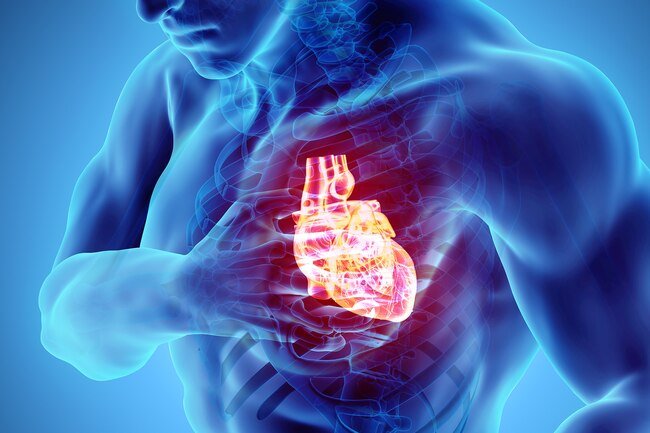A Guide to understanding heart-failure and its treatment

Guide to Heart-Failure and its Treatment
Heart failure, or congestive heart failure, is one of the most common causes of hospitalization for patients over 65. According to heart specialist doctors in Mumbai, more than 6,70,000 people get diagnosed with congestive heart failure each year.
The sections below discuss heart failure, including its symptoms, reasons, and treatments.
What is Heart Failure?
Heart failure occurs when the heart functions below optimum levels. It happens when blood travels through the heart and body at an alarmingly lower rate, leading to pressure build-up inside the heart. The heart also fails to fill the body with the required nutrients and oxygen. To keep pace with the increasing demand for pumping more blood, the muscles start stretching, resulting in the enlargement of the heart.
With the increase in muscle mass, the heart begins pumping blood more strongly. As a result, the whole body works harder to compensate for the overworked and overtired heart, and the blood vessels become narrow to keep the blood pressure high.
Heart failure also makes it difficult for the organs like kidneys and lungs to get the proper blood supply as the whole body works harder to keep the blood supply intact in the brain and the heart. Fluid and salt build up in the legs, arms, feet, ankle, kidneys, and lungs, making the body congested and leading to congestive heart failure.
Reasons behind Congestive Heart Failure
- Heart attack: Many doctors worldwide, including heart specialist doctors in Mumbai, view this as a result of sudden coronary artery blockage that stops blood from traveling to the heart. It can prevent proper heart functioning and cause permanent damage to the heart muscle.
- Coronary Artery Disease (CAD): This disease prevents the arteries from supplying oxygen-infused blood to the heart leading to limited blood flow to the cardiac muscles. As a result, the heart gets deprived of necessary nutrients and oxygen.
- Cardiomyopathy: It occurs when the cardiac muscles struggle to pump blood to the whole body. It can result in heart failure.
- Sometimes certain conditions make the heart overwork, including valve or kidney disease, thyroid, high blood pressure, diabetes, and congenital heart disease. Similarly, several diseases in the body at the same time can trigger heart failure.
Symptoms of Heart Failure
- Water retention: Inadequate blood flow to the kidneys can lead to water retention, resulting in swollen legs, ankles, and abdomen (edema). Unexplained weight gain may also occur, and bloating in the stomach can trigger nausea and lack of appetite.
- Congestion in the lungs: Fluid retention in the lungs can lead to shortness of breath, especially when lying in bed. In addition, wheezing and dry cough can result from water retention in the lungs.
- Irregular heartbeat: An overworking heart beats faster than usual as it has to put more effort into pumping blood for the whole body. Therefore, rapid or irregular heartbeats are one of the many symptoms of heart failure.
- Fatigue: Prolonged dizziness or fatigue can be an alarming symptom of heart failure. Besides, lower blood flow in the muscles, organs, and brain can lead to tiredness and confusion.
Types of Heart Failure
- Systolic Heart Failure or Systolic Dysfunction
It is one of the main types of heart failure. It occurs when our cardiac muscle fails to contract with enough force, and the flow of oxygen-infused blood throughout the body becomes limited.
- Diastolic Dysfunction
This kind of heart failure occurs when the cardiac muscles become stiff and fail to relax properly. The inflexibility stops the heart’s ventricles from getting filled up correctly, leading to blood backtracking in the organs.
Ejection Fraction (EF) is performed during an echocardiogram to check if any of these two dysfunctions are present in the heart.
Diagnosis
There are several tests to diagnose heart failure. Aheart specialist doctor in Mumbai or elsewhere suggests them after considering the patient’s family history, medical history, and physical exam reports.
The tests to diagnose heart failure include:
- Chest X-rays are done to find any sign of heart enlargement or damage in the lungs or inside the chest structure.
- Electrocardiogram (EKG) is a test that determines the heart’s electrical activity and digs out information about previous heart attacks.
- An echocardiogram is a test used to diagnose and monitor heart disease with the help of ultrasound waves.
- BNP blood test marks the prognosis of heart failure.
- Exercise stress tests check the heart’s performance under pressure.
- The Holter monitor test checks the heart’s electrical activity.
Treatment for Heart Failure
Several treatment options are available during and before heart failure nowadays. However, proper medication, lifestyle changes along with rigorous monitoring are essential. In severe cases, advanced treatment is also suggested by the doctors.
Common medications used in heart treatment are:
- Aldosterone antagonists
- ACE inhibitors
- BETA-blockers
- ARNIs
- ARBs
- Digoxin
- Diuretics
- Potassium or magnesium
Doctors, including heart specialist doctors in Mumbai, also recommend cardiac rehabilitation programs and to provide a heart-healthy lifestyle.




